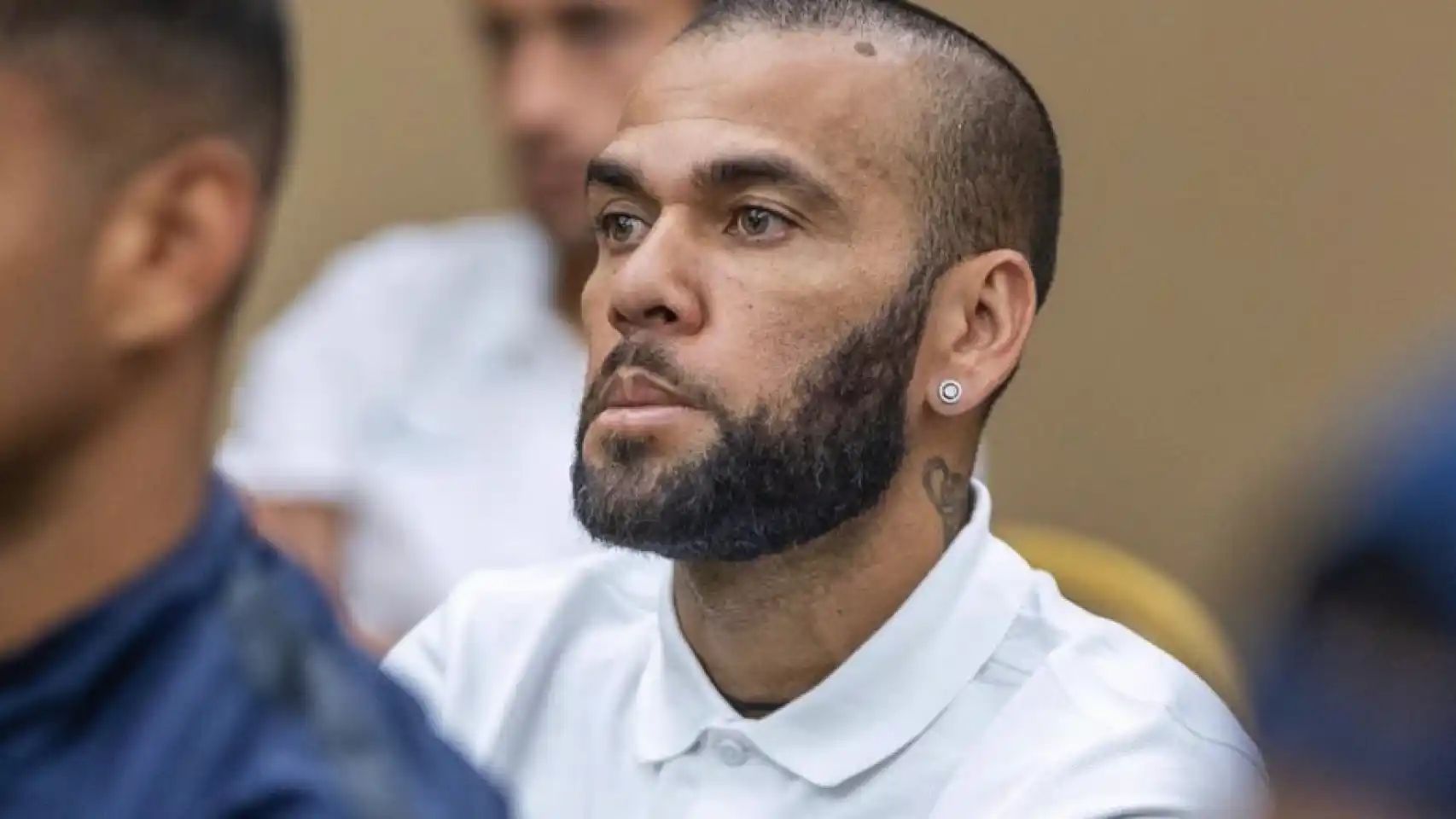Former Barcelona and Brazil football star Dani Alves was released on bail this week after posting a €1 million bond on Monday.
The 40-year-old had been convicted of raping a woman in a nightclub just last month and was sentenced to four and a half years in prison, along with a €150,000 payment in damages to the victim.
However, Alves, accompanied by his lawyer Ines Guardiola, walked out of Brians 2 Prison on Monday after successfully appealing his sentence from home.
Dani Alves hosts all-night party just hours after being released on bail
The Sun reports that following his release, the ex-Barça player reportedly hosted an all-night celebration with friends and family until 5 in the morning, celebrating his father’s recent birthday in a lavish party at his villa in Esplugues de Llobregat.
The report details that his friends and family first celebrated Alves’ father’s birthday at a dinner party in Barcelona before heading to Alves’s pad to continue the celebration.
It adds that the legendary full-back was pictured stone-faced as he walked through his mansion’s front door.

Prosecution to appeal the case
However, the legal battle is far from over for Alves, as the prosecution, along with the victim, intends to appeal the case, seeking an extension of his sentence.
Despite being granted bail, the prosecution has expressed outrage at the decision, with Ester Garcia, the lawyer representing Alves’ rape victim, condemning the court’s decision as favouring the rich.
Garcia emphasised her dissatisfaction with the decision, labelling it scandalous and vowing to appeal it, citing concerns that justice was not served.
She told RAC1 radio (via The Sun):
“I’m very surprised and totally outraged… because it’s like this is justice for the rich.”Garcia added: “It is scandalous that they can free a person who they know can get hold of a million euros in a heartbeat.”
“I am very dissatisfied with this court decision. “We will lodge an appeal because we believe it is not in accordance with the law.”
The case has sparked controversy and raised questions about the fairness of the legal system’s treatment of high-profile individuals.







